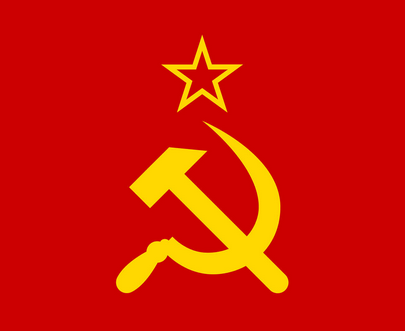

Chapter 13 answer that I think? If I remember and understood Marx right, but one of the things that affects the rate of profit is average organic composition of capital, mainly constant capital to variable capital, of a total capital. A thing to keep in mind is Marx refers to the total social capital, or capital as a whole. But anyways if there more constant to variable, profit starts to fall, and then capitalists need more variable capital/workers/or other ways of exploiting labor power, to keep the same rate of profit or to increase it. Since surplus value is factored into the rate of profit. Since rate of profit is surplus value over the total capital. Or as Marx puts it
The proportion of this surplus to the total capital is therefore expressed by the fraction s/C, in which C stands for total capital. We thus obtain the rate of profit s/C=s/(c+v), as distinct from the rate of surplus-value s/v.
But you get a lot of dynamics going on like the more developed capitalism is in a country is, the lesser the rate of profit I think due to more constant capital? but in countries where capitalism is less developed, the higher the rate of profit, due to more variable capital.
Also with the your original question of profit and surplus value, if it helps more, there this from chapter 2 from vol 3
spoiler tagging since I don't want quotes to take up the whole page
If, as Hegel would put it, the surplus therefore re-reflects itself in itself out of the rate of profit, or, put differently, the surplus is more closely characterised by the rate of profit, it appears as a surplus produced by capital above its own value over a year, or in a given period of circulation.
Although the rate of profit thus differs numerically from the rate of surplus-value, while surplus-value and profit are actually the same thing and numerically equal, profit is nevertheless a converted form of surplus-value, a form in which its origin and the secret of its existence are obscured and extinguished. In effect, profit is the form in which surplus-value presents itself to the view, and must initially be stripped by analysis to disclose the latter. In surplus-value, the relation between capital and labour is laid bare; in the relation of capital to profit, i.e., of capital to surplus-value that appears on the one hand as an excess over the cost-price of commodities realised in the process of circulation and, on the other, as a surplus more closely determined by its relation to the total capital, the capital appears as a relation to itself, a relation in which it, as the original sum of value, is distinguished from a new value which it generated. One is conscious that capital generates this new value by its movement in the processes of production and circulation. But the way in which this occurs is cloaked in mystery and appears to originate from hidden qualities inherent in capital itself.
Also to just Just to quote some parts from vol 3, mainly chapter 13 that might also help?
spoiler
[…]This mode of production produces a progressive relative decrease of the variable capital as compared to the constant capital, and consequently a continuously rising organic composition of the total capital. The immediate result of this is that the rate of surplus-value, at the same, or even a rising, degree of labour exploitation, is represented by a continually falling general rate of profit. (We shall see later [Present edition: Ch. XIV. — Ed.] why this fall does not manifest itself in an absolute form, but rather as a tendency toward a progressive fall.) The progressive tendency of the general rate of profit to fall is, therefore, just an expression peculiar to the capitalist mode of production of the progressive development of the social productivity of labour. This does not mean to say that the rate of profit may not fall temporarily for other reasons. But proceeding from the nature of the capitalist mode of production, it is thereby proved logical necessity that in its development the general average rate of surplus-value must express itself in a falling general rate of profit. Since the mass of the employed living labour is continually on the decline as compared to the mass of materialised labour set in motion by it, i.e., to the productively consumed means of production, it follows that the portion of living labour, unpaid and congealed in surplus-value, must also be continually on the decrease compared to the amount of value represented by the invested total capital. Since the ratio of the mass of surplus-value to the value of the invested total capital forms the rate of profit, this rate must constantly fall.
Even if the exploited mass of the working population were to remain constant, and only the length and intensity of the working-day were to increase, the mass of the invested capital would have to increase, since it would have to be greater in order to employ the same mass of labour under the old conditions of exploitation after the composition of capital changes.
Since the development of the productiveness and the correspondingly higher composition of capital sets in motion an ever-increasing quantity of means of production through a constantly decreasing quantity of labour, every aliquot part of the total product, i.e., every single commodity, or each particular lot of commodities in the total mass of products, absorbs less living labour, and also contains less materialised labour, both in the depreciation of the fixed capital applied and in the raw and auxiliary materials consumed. Hence every single commodity contains a smaller sum of labour materialised in means of production and of labour newly added during production. This causes the price of the individual commodity to fall. But the mass of profits contained in the individual commodities may nevertheless increase if the rate of the absolute or relative surplus-value grows. The commodity contains less newly added labour, but its unpaid portion grows in relation to its paid portion. However, this is the case only within certain limits. With the absolute amount of living labour newly incorporated in individual commodities decreasing enormously as production develops, the absolute mass of unpaid labour contained in them will likewise decrease, however much it may have grown as compared to the paid portion. The mass of profit on each individual commodity will shrink considerably with the development of the productiveness of labour, in spite of a growth in the rate of surplus-value. And this reduction, just as the fall in the rate of profit, is only delayed by the cheapening of the elements of constant capital and by the other circumstances set forth in the first part of this book, which increase the rate of profit at a given, or even falling, rate of surplus-value.
To add Marx also goes into counteracting the tendency of the rate of profit to fall here in chapter 14 one of them increasing the exploitation of labor. If you check out those chapters and I think chapter 15 to, Marx has examples in them, but in chapter 13 and 14 he tries to give examples.













This part of a paragraph was interesting to read, especially the last sentence.